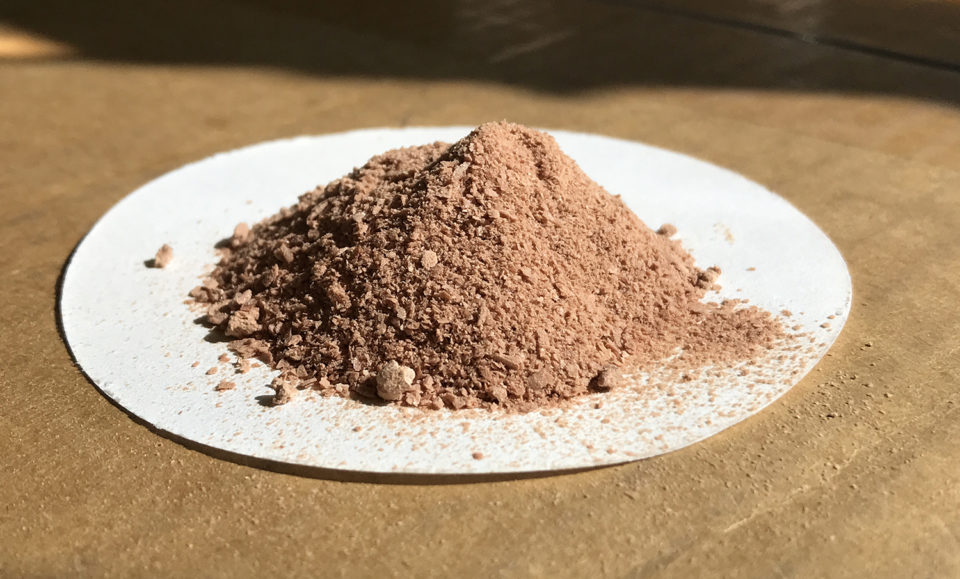Silicon Valley biotechnology company selected as a FEED-X innovator, while its roster of big-name collaborations expands

Producers of novel feed ingredients for the aquaculture industry – think microalgae, insect larvae and single-cell proteins – have a lot of questions to answer. Two big ones are whether their production systems can reach commercial scale, and whether the end product is price-competitive with existing ingredients.
Their pathway to commercialization begins with innovation. Silicon Valley (California, USA) biotechnology company NovoNutrients has demonstrated its ability to utilize industrial waste streams that would otherwise cause harm to the environment to create a microbial biomass via industrial fermentation.
https://www.aquaculturealliance.org/advocate/new-nutrient-aquaculture-microbes-eat-carbon-waste/
The subsequent step is collaboration, which for NovoNutrients is happening on multiple fronts. Chris Oakes, VP of market and product development, told the Advocate that newly formed collaborations with multinational energy corporation Chevron and with Skretting, one of the world’s largest animal feed producers, have created an “exciting exposure moment” for the company.
But they’re not done, as this week the company will announce that it has been selected to join FEED-X, a Project X Global accelerator project founded in partnership with the World Wide Fund for Nature (WWF). FEED-X is one of several initiatives intended to transform the “sustainability performance” of industry value chains linked to climate change and declines in biodiversity. The program aims to get 10 percent of global industry to procure alternative solutions for raw materials at scale.
“Raw materials are going to be the story, in relation to climate change and what happens with the future of the planet,” Oakes said. “Single-cell proteins have durability and stability, in a world where who knows how farming has to change.”
Only a handful of the 10 or so companies chosen for FEED-X have been officially named. Veramaris, a Netherlands-based joint venture from DSM and Evonik that produces omega-3 fatty acid-rich algal oil produced in Slovakia and the United States, is one and UniBio, a microbial protein methane fermentation company based in Denmark, is another. Other yet-to-be-named companies include producers of mealworms and black soldier flies, both of which “upcycle” nutrients from agriculture waste and byproducts.

Flying a bit under the radar, NovoNutrients is gaining wider recognition in the wide-open field of alternative aquafeed ingredients as aquaculture and agriculture seek to adopt more sustainable practices. It now has a “real world oil and gas collaborator” in Chevron, which Oakes said is allowing the company to prove its ability to utilize industrial carbon emissions; its collaboration with Skretting, announced in September and which will test the NovoNutrients Protein in its R&D labs, will smooth and shorten the path to large-scale manufacturing and adoption, according to its CTO, Brian Sefton.
“[The collaborations] mean we are on the right track, with the right products for the right industries,” said Oakes. “It’s validation of the emerging clean energy and hydrogen economies; it’s validation of the carbon economy; and it’s validation of aquaculture! Players who never knew what aquaculture meant are now thinking about the fish feed conundrum.”
NovoNutrients’ gas fermentation process blends two massive-scale feedstocks: carbon dioxide and hydrogen. Carbon dioxide is utilized from untreated waste emissions from cement plants, ethanol factories, pulp and paper refineries and other industrial sources. The two gases grow the fast-doubling bacteria strains, which the company calls a “microbial consortium,” and after fermentation the end result is a product that is 70 percent protein that can feed fish, pets and even people.
While it remains a pre-sales, venture-funded company, Oakes predicts 2021 will be a “breakout year” for NovoNutrients.
“We’ve demonstrated good traction, have good commercial collaborations up and down the value chain. Now it’s time to show that we’re a player and that this technology is scaling as part of this new paradigm,” he said. “If the world really invests in sustainable technology and the circular economy, this is the opportunity to establish the right beachheads in a global way with production and strategic partnerships. It’s industrial biotech, though, so it can’t be just deployed like software – at least not quite yet.”
Follow the Advocate on Twitter @GAA_Advocate
Now that you've finished reading the article ...
… we hope you’ll consider supporting our mission to document the evolution of the global aquaculture industry and share our vast network of contributors’ expansive knowledge every week.
By becoming a Global Seafood Alliance member, you’re ensuring that all of the pre-competitive work we do through member benefits, resources and events can continue. Individual membership costs just $50 a year. GSA individual and corporate members receive complimentary access to a series of GOAL virtual events beginning in April. Join now.
Not a GSA member? Join us.
Author
-

James Wright
Editorial Manager
Global Aquaculture Alliance
Portsmouth, NH, USA
Tagged With
Related Posts

Aquafeeds
Montana firm putting barley on the alternative feed ingredient menu
Aquafeed manufacturers around the world seeking alternatives to fishmeal may soon be able to turn to an abundant and underutilized crop: barley.

Aquafeeds
A new nutrient for aquaculture, from microbes that consume carbon waste
Biotechnology firm NovoNutrients aims to produce a line of nutraceutical aquafeed additives as well as a bulk feed ingredient that can supplement fishmeal. Its process includes feeding carbon dioxide from industrial gas to a “microbial consortium” starring hydrogen-oxidizing bacteria.

Aquafeeds
Fly guys: Canada opens the door for insect-based feed companies
The sci-fi flick “The Fly” warned about mixing flies and technology, but high-tech black soldier fly farmers are seizing a real opportunity in aquaculture.

Aquafeeds
Aquafeed moonshots at the F3 ‘talent show’
At the F3 (fish-free feed) Companies Got Talent event in Burlingame, Calif., last week, alternative (non-marine) aquafeed ingredient companies spoke of decoupling aquaculture from fishmeal and fish oil in their quest for greater sustainability.

